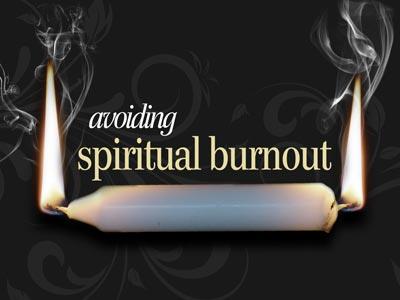-
A Season Of Mourning Series
Contributed by Alan Perkins on Mar 30, 2001 (message contributor)
Summary: The hope of the Christian is not that we will never experience grief or sorrow. Our hope and confidence is that when we do, Christ will strengthen and comfort us.
This is week two of a series of messages on the topic of “seasons” in the Christian life. What’s a season? A season is a period of time, long or short, when our lives tend to be dominated by one particular issue. For instance, last week, we looked at “waiting” as one of these seasons. The purpose of this series is to help us anticipate and understand some of the most common seasons. That way, when they occur we won’t be caught by surprise. Instead we’ll be prepared to deal with them in a manner that’s spiritually healthy and honoring to God.
If we have any doubt as to whether this is a useful or a Biblical concept, we only have to look to the book of Ecclesiastes. Ecclesiastes was written about 3,000 years ago, in the tenth century B.C., by Solomon, king of Israel. It is part of the Wisdom literature of the Old Testament. In chapter 3, verses 1-8 of Ecclesiastes (NIV), we read the following:
There is a time for everything, and a season for every activity under heaven:
A time to be born and a time to die, a time to plant and a time to uproot,
A time to kill and a time to heal, a time to tear down and a time to build,
A time to weep and a time to laugh, a time to mourn and a time to dance,
A time to scatter stones and a time to gather them, a time to embrace and a time to refrain,
A time to search and a time to give up, a time to keep and a time to throw away,
A time to tear and a time to mend, a time to be silent and a time to speak,
A time to love and a time to hate, a time for war and a time for peace.
In other words, Solomon is telling us that in every area of life, wisdom requires that we understand what’s going on and respond appropriately. You can’t take a “one size fits all” approach to life. For example, Solomon writes that there’s “a time to be silent and a time to speak.” If you talk when you should be quiet, you’re going to have problems. You can all think of times when you spoke and wished you hadn’t. On the other hand, it’s not always right to remain silent. If your teenage son or daughter suddenly becomes withdrawn and starts to have trouble in school, you need to say something. Ask questions. Find out what’s going on. One of the challenges I face as a pastor is deciding when to say something and when to hold back. If I suspect that someone in the congregation is struggling with a spiritual problem, should I say something? Or should I wait until they ask for help? I’m not quite as wise as Solomon, so sometimes I get it wrong. The point is that every situation is different. There’s a right time to step in, and there’s a right time to wait and see what happens.
This morning, we’re going to look at one of the other seasons that Solomon identifies. He writes that there’s “a time to weep and a time to laugh, a time to mourn and a time to dance,” and our topic today is the “Season of Mourning.” All of us at one time or another, and probably multiple times throughout our lives, will have to deal with this season of grief, and loss, and mourning. It’s never pleasant or comfortable. It’s not something we choose or volunteer for, it’s not a season we look forward to. Nevertheless, it’s a reality. Grief happens. It comes unbidden and unwelcome into all our lives. But understanding this season of mourning can make the difference between making it through in a healthy and God-honoring way, or, on the other hand, just being wiped out and devastated by it and either never recovering, or taking much longer than necessary to recover, and experiencing more pain than necessary. My goal today is to help you survive and even thrive when you’re passing through a season of mourning.
We have difficulty mourning
First, let’s acknowledge that Americans, by and large, don’t know how to mourn. Americans are very uncomfortable with the whole idea of grief. We take it as a sign of weakness or personal failure if we’re not happy. Sadness isn’t seen as a normal part of life. Rather, it’s seen as a reason to get a prescription for anti-depressants. Somehow, our right to the pursuit of happiness has been transformed into a requirement that we always actually be happy. Grief is almost unpatriotic. It calls into question our whole form of government. If democracy doesn’t guarantee constant happiness, then there must be something wrong! Look at our movies. American movies all have happy endings. You can have dozens of people shot, murdered, maimed, and knifed, but in the end, the good guy wins and everybody lives happily ever after (everybody that’s not dead, that is). Movies that violate the “happy ending” principle generally get good reviews, but lose money. TV shows are the same. In fact, the only major part of our popular culture I can think of that consistently violates this principle and gets away with it is country music. Now add to that the attitude that Christians should always be happy. If we’re sad, somehow it reflects badly on God. After all, didn’t Jesus come to make us happy all the time? No matter what happens, we have to put on a happy face; otherwise, it casts doubt on the truth of the gospel.

 Sermon Central
Sermon Central



